Announcements -
29/08/23Maria Isabel Lima
In July, Decree No. 11.615/2023 was published and came into force, introducing new regulations to Law No. 10.826/2003 (“Disarmament Statute”), significantly changing the rules on the use and trade of firearms, as well as their accessories and ammunition, in Brazil.
The new decree transfers part of the regulatory and inspection attributions for firearms, ammunition, and accessories to the Federal Police, as well as changes:
Among other changes, the validity period for Firearm Registration Certificates (CRAFs) has been reduced, and the rules for granting Registration Certificates (CRs) to individuals and companies, as well as the procedures for obtaining Traffic Permits, have been altered.
The main changes are highlighted below:
1. CHANGES IN REGULATORY AND INSPECTION ATTRIBUTION
The Federal Police is now responsible for defining, standardizing, systematizing, regulating, and supervising the following procedures and activities:
(i) Registration of all “civilian” firearms and their accessories, and ammunition, including the registration of CAC firearms, which was previously under the attribution of the Army Command (art. 4, I, a);
(ii) Authorization to acquire firearms for permitted use, including firearms to be acquired by CACs (art. 15); and
(iii) Granting of transit permits (art. 4, I, f).
Transit permits for CACs are under the attribution of the Army Command (art. 33), which authorizes transit with firearms registered in its collections, provided that they are:
(i) Without ammunition;
(ii) Accompanied by ammunition in a suitable container;
(iii) Transit permit valid for a pre-established route;
(iv) For a predetermined period;
(v) In accordance with the purpose stated in the corresponding registration, as established by the Army Command.
2. CHANGES TO THE CLASSIFICATION OF RESTRICTED AND PERMITTED WEAPONS
The parameters for classifying firearms for restricted and permitted use have been altered, but the provisions for firearms for prohibited use have been maintained.
The specification of firearms that fall under restricted and permitted use will be defined in a joint act to be published by the Army Command and the Federal Police. Articles 11 and 12, however, set out the requirements that the specification must meet, as follows:
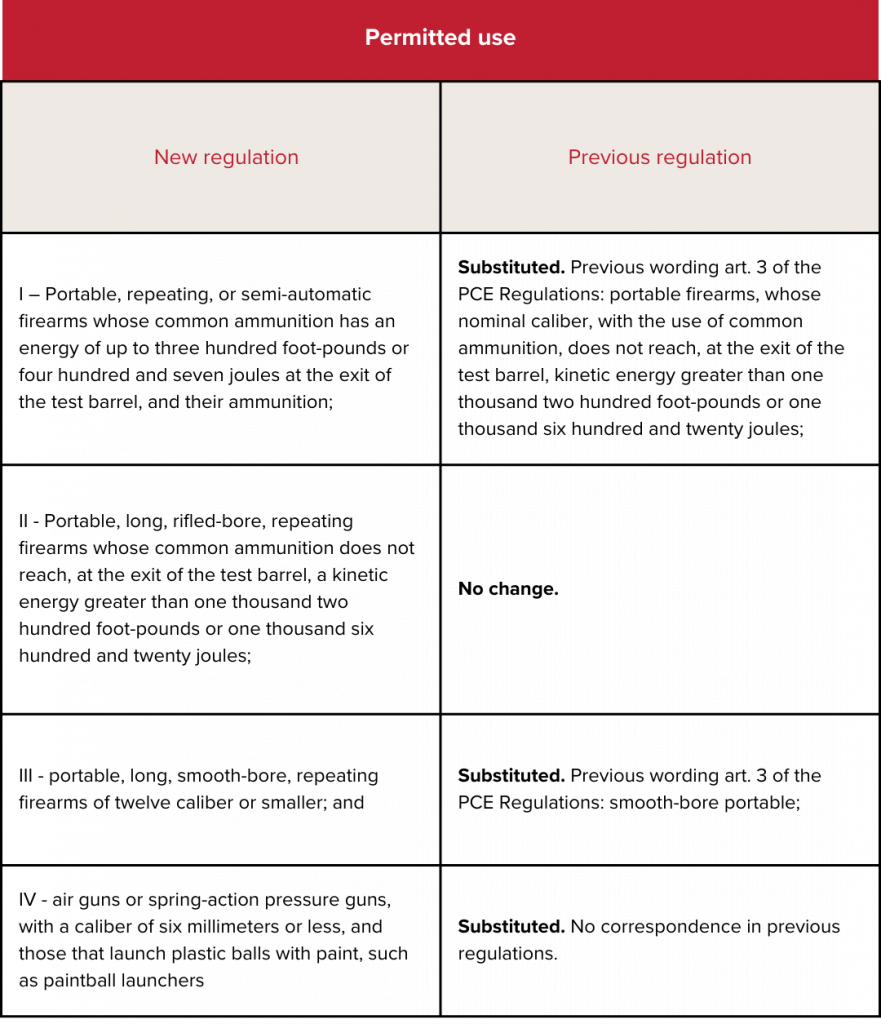
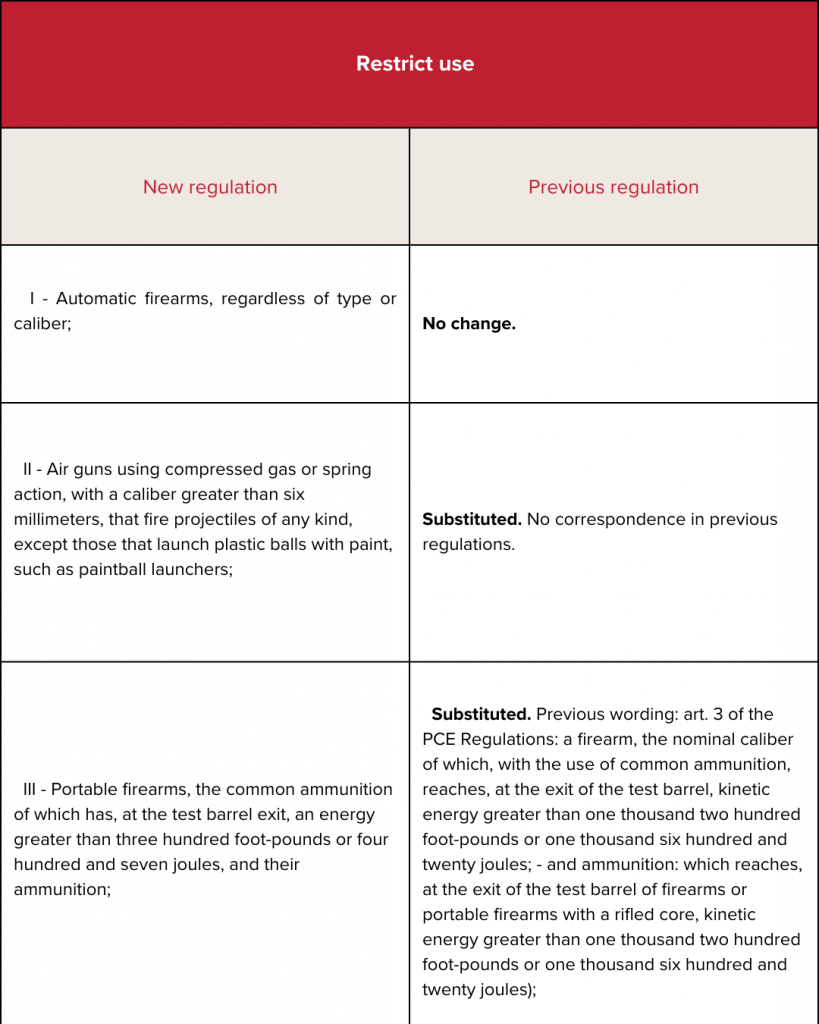
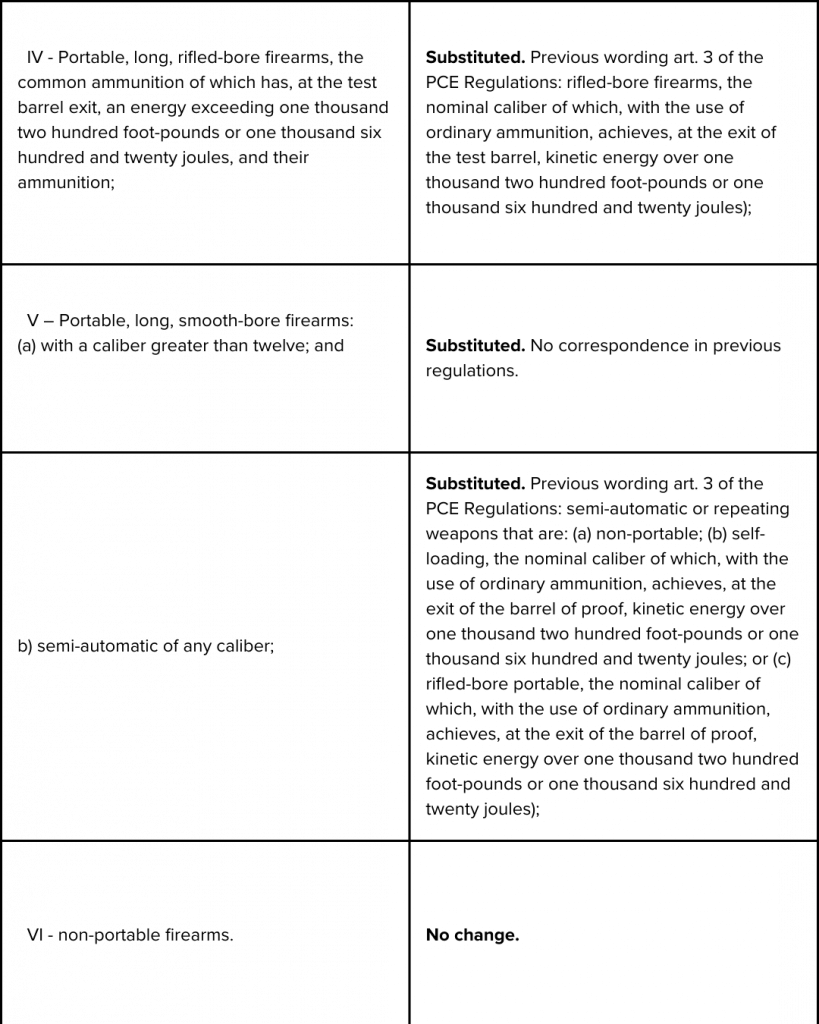
Article 13 of Decree 11.615/2023 also provides for a general ban on the sale of restricted firearms and ammunition, with only the following exceptions:
(i) By public institutions and their members, in the interests of public security or national defense;
(ii) Level 3 shooters; and
(iii) Exceptional hunters.
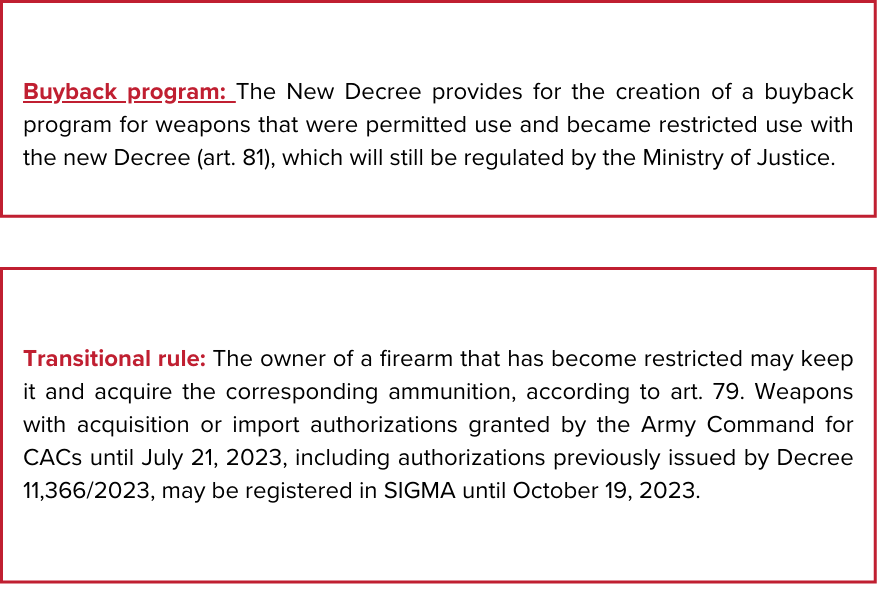
3. CHANGES TO THE RULES ON THE SALE OF FIREARMS
One of the main differences in comparison to the previous regime is the provision in item III of Art. 15, which requires proof of actual need to acquire a firearm, rather than just to carry it.
In addition, there has been a significant reduction in the quantities of firearms and ammunition that can be purchased for personal defense.
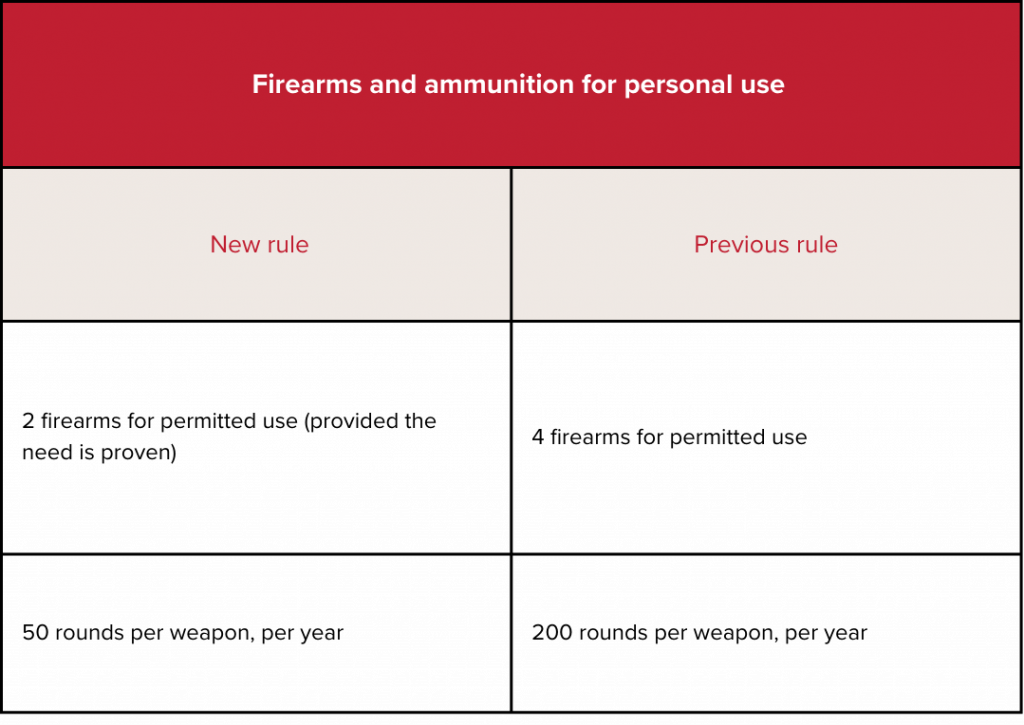
4. CHANGING THE VALIDITY OF CRAFs
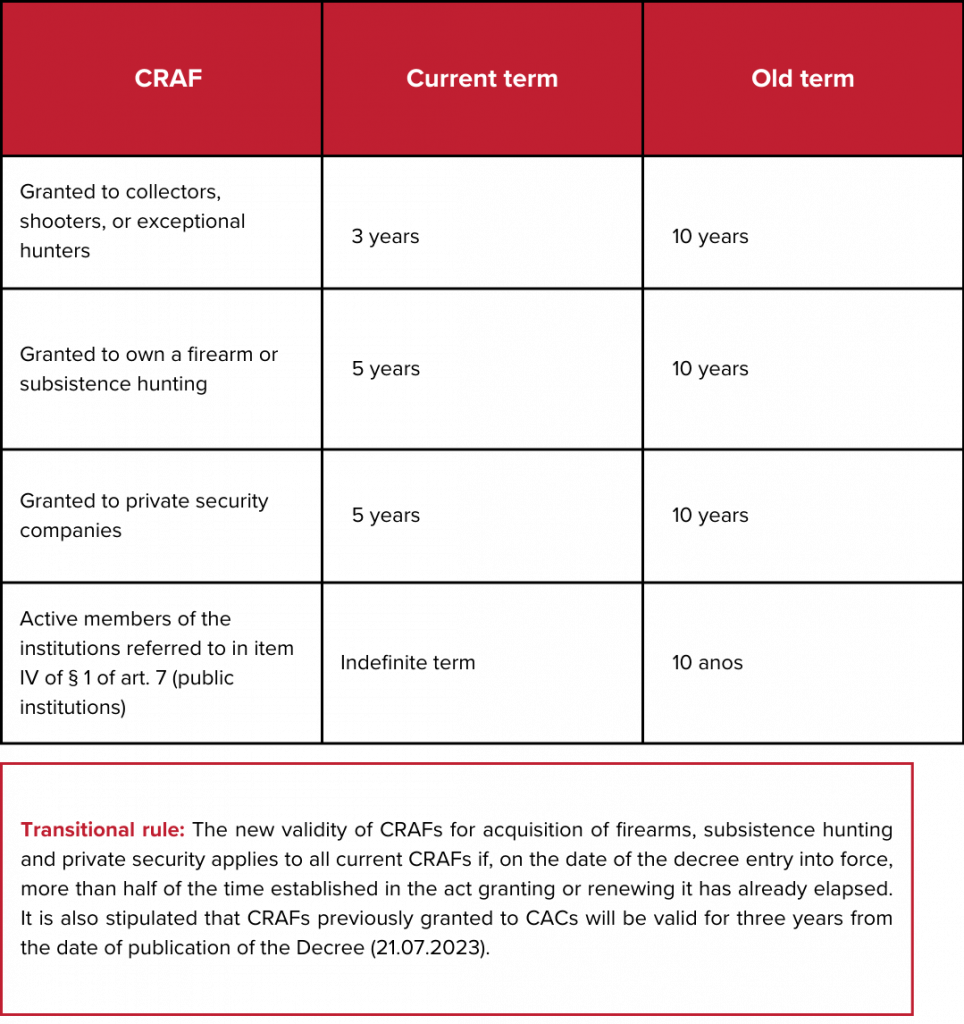
5. CHANGES FOR HUNTERS, SHOOTERS, AND COLLECTORS (CACs) OF FIREARMS
Some of the main changes to the regime applicable to CACs were:
(i) Proof of “effective need” for the acquisition of weapons by CACs (art. 15, III, paragraphs 1 and 3);
(ii) A ban on the purchase and sale of restricted weapons and ammunition, except for level 3 shooters and exceptional hunters of invasive species (art. 13);
(iii) Prohibition on carrying a loaded weapon when traveling to training and competitions (Art. 21, sole paragraph, and Art. 33, paragraph 1);
(iv) End of recreational shooting for those not registered with the Army as CACs (art. 34, paragraph 6);
(v) Mandatory membership of shooters in a shooting range (art. 35).
The quantity of firearms and ammunition that can be acquired by CACs was also altered and three different levels of shooters were created:
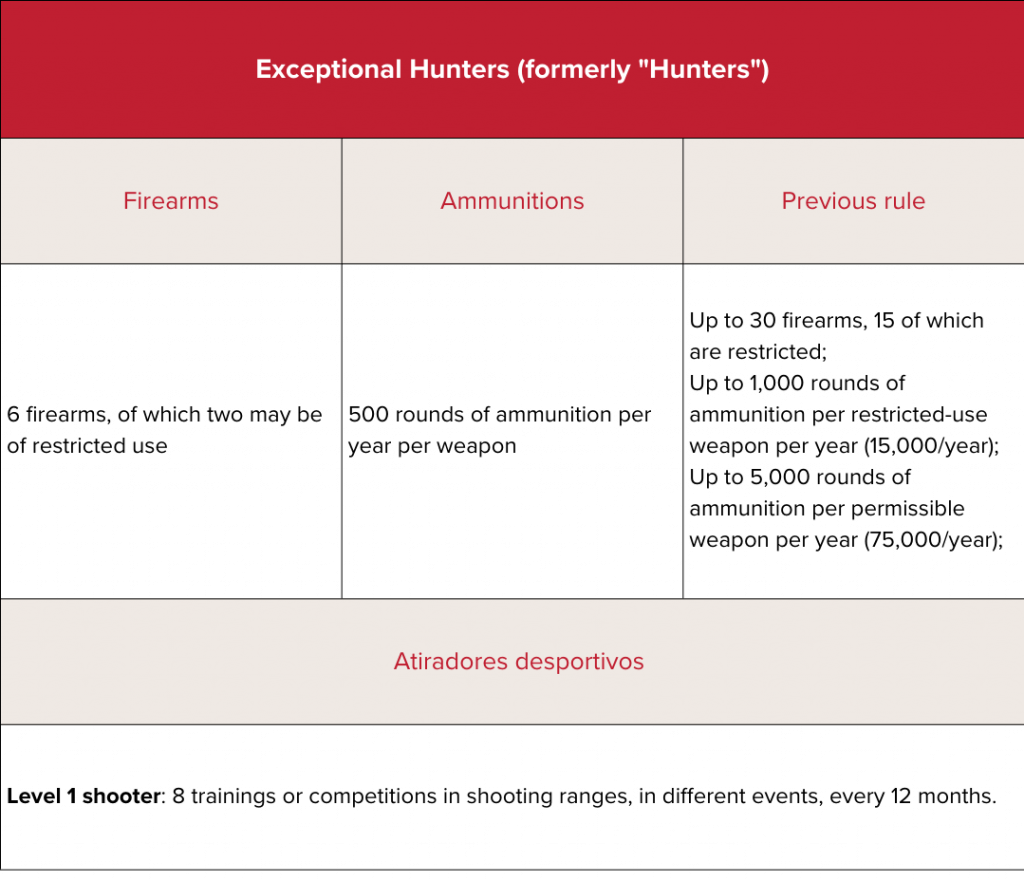
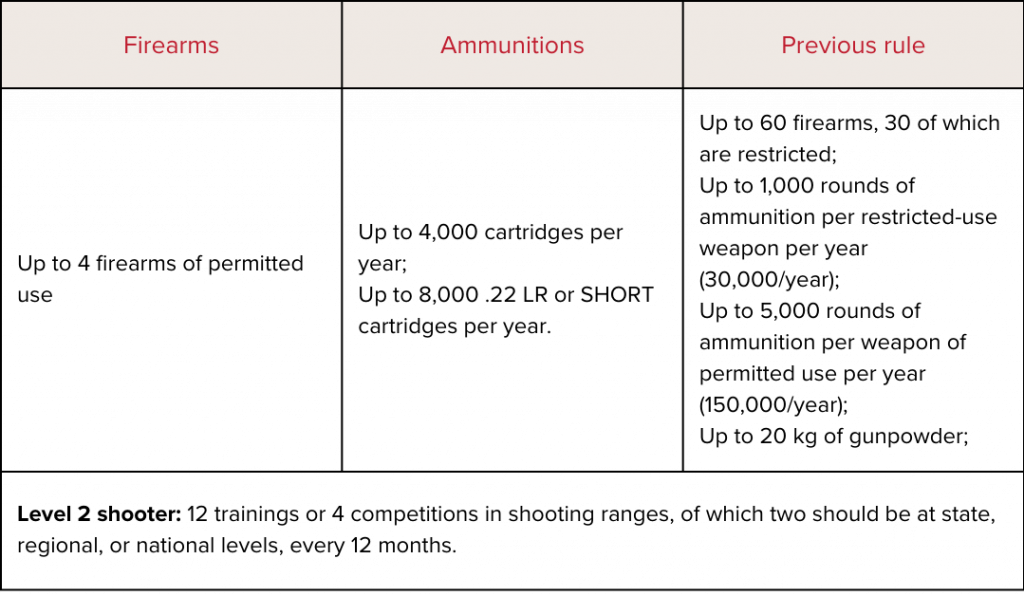
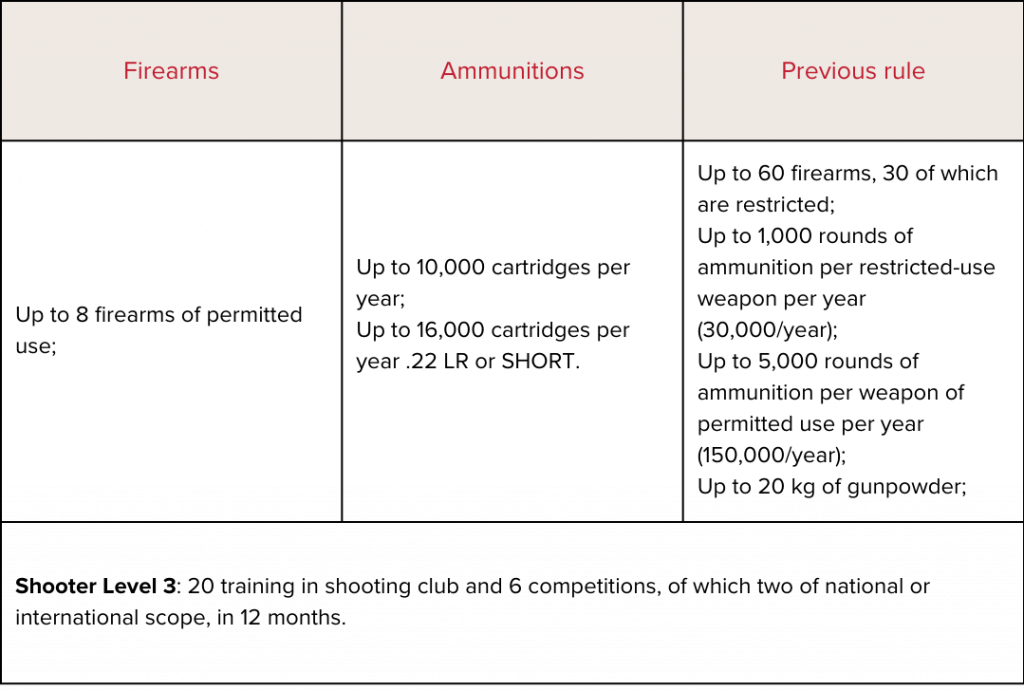
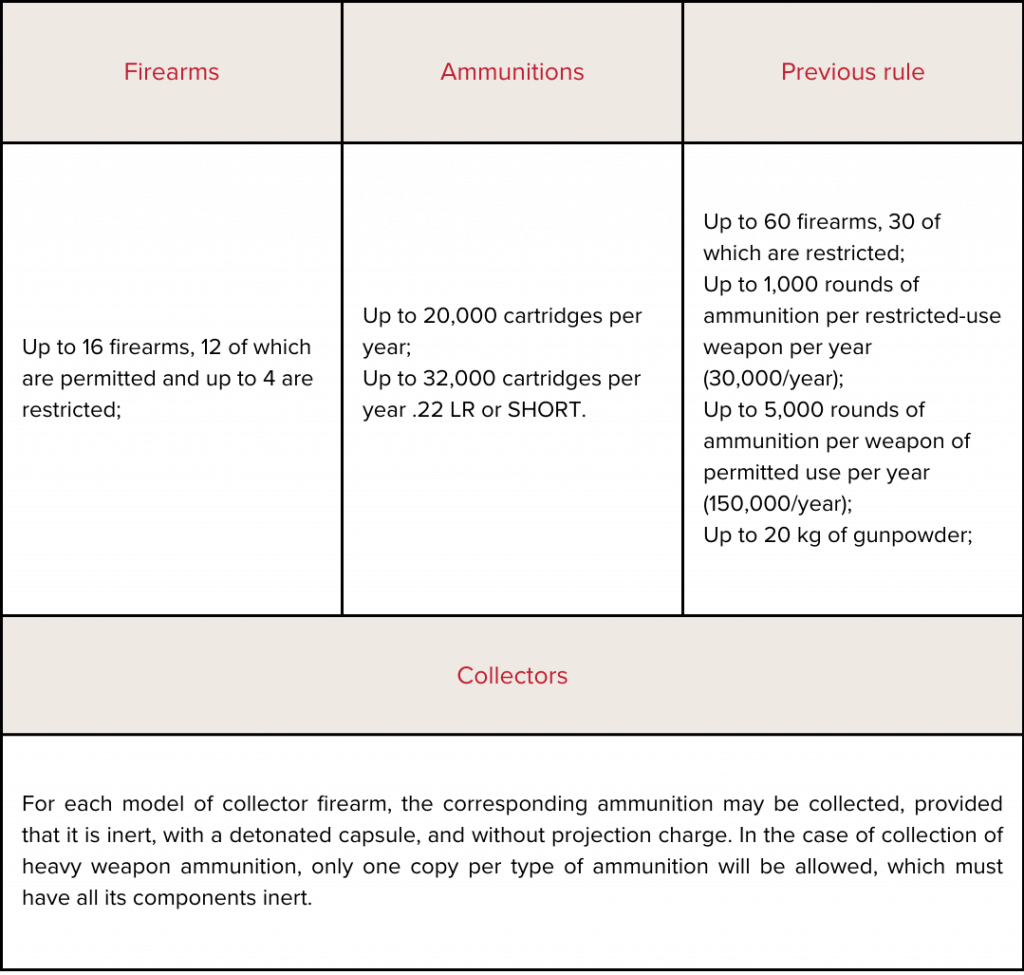
6. CHANGES FOR PRIVATE SECURITY COMPANIES
Private security companies will be allowed to acquire, for use by security guards on duty, only firearms of permitted use (pistol type). On July 27th, a statement was issued by the Ministry of Justice clarifying that the activities of security guards are governed by the regulations of Law No. 7,102/1983, which remains in effect, and that, regarding the firearms used by security guards, the following passage continues to apply:
“Article 22 – Security guards will be allowed to carry a .32 or .38 caliber revolver and use wooden or rubber truncheons while on duty.
Sole Paragraph – Security guards engaged in the transportation of valuables may also use legally permitted shotguns, of 12, 16, or 20 calibers, of national manufacture.”
The acquisition of firearms will depend on the prior issuance of a Private Security Company Firearm Acquisition License (CRPJ) and will adhere to the procedures and requirements established in a directive to be issued by the Director-General of the Federal Police. The requirement of integrity stipulated in clause I of the main section of Article 4 of Law No. 10,826/2003 will be demonstrated annually by the owners of private security companies, under penalty of revocation of the authorization for the operation of the service and the associated Firearms Registration Certificates (CRAF).
7. CHANGES FOR SHOOTING RANGES
The following public safety requirements were included for the granting of registration for shooting sports entities and shooting instruction service companies:
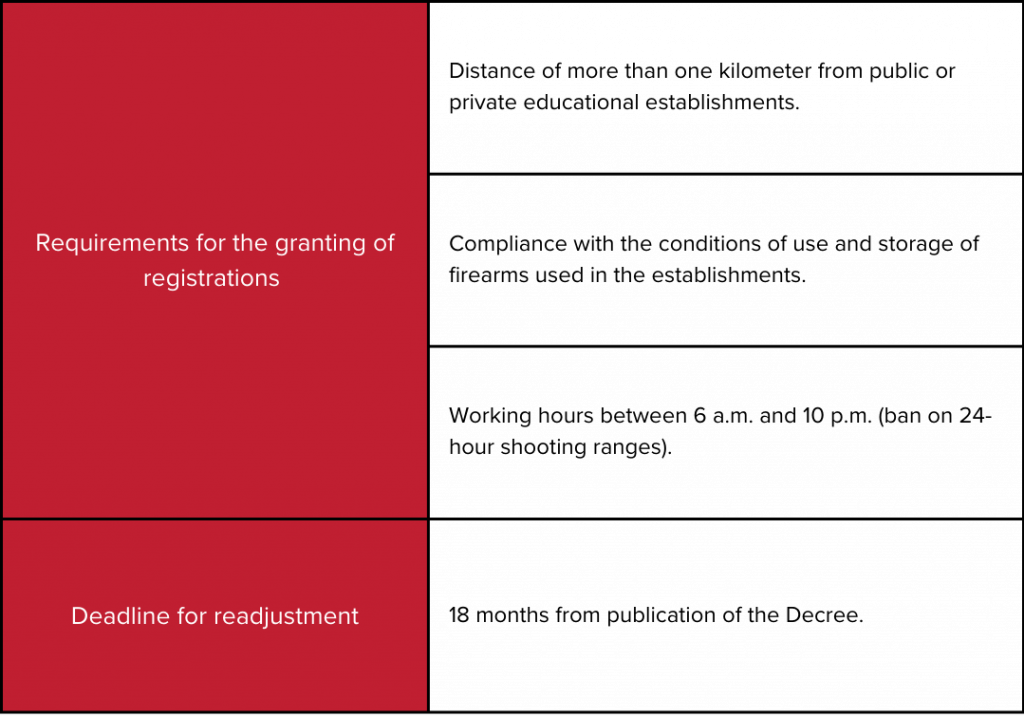
Regarding ammunition reloading, according to Article 34, Paragraph 5 of the New Decree, it may only be carried out by public security agencies for training purposes and by sports shooting organizations.
8. ADVERTISING OF FIREARMS, AMMUNITION, AND ACCESSORIES
Article 33 of the Disarmament Statute provided for fines ranging from BRL 100,000.00 to BRL 300,000.00, as specified by regulation, for transportation companies that transport firearms and ammunition without the proper authorizations, and for production or trade companies of firearms that advertise for sale, except in specialized publications, promoting the indiscriminate use of firearms.
The New Decree, in Article 75, detailed the fines, and additionally, equated firearm production or trade companies to firearm instruction service companies, sports shooting entities, and social media platforms or sales intermediaries that fail to exercise due care in relation to the advertising of firearms and their accessories, as established in a directive from the Director-General of the Federal Police, which still will be published.
The fines shall be imposed by the “competent oversight authority,” which still is to be defined, considering the future cooperation envisioned in the New Decree between the Federal Police and the Brazilian Army.
The following violations and penalties have been introduced:
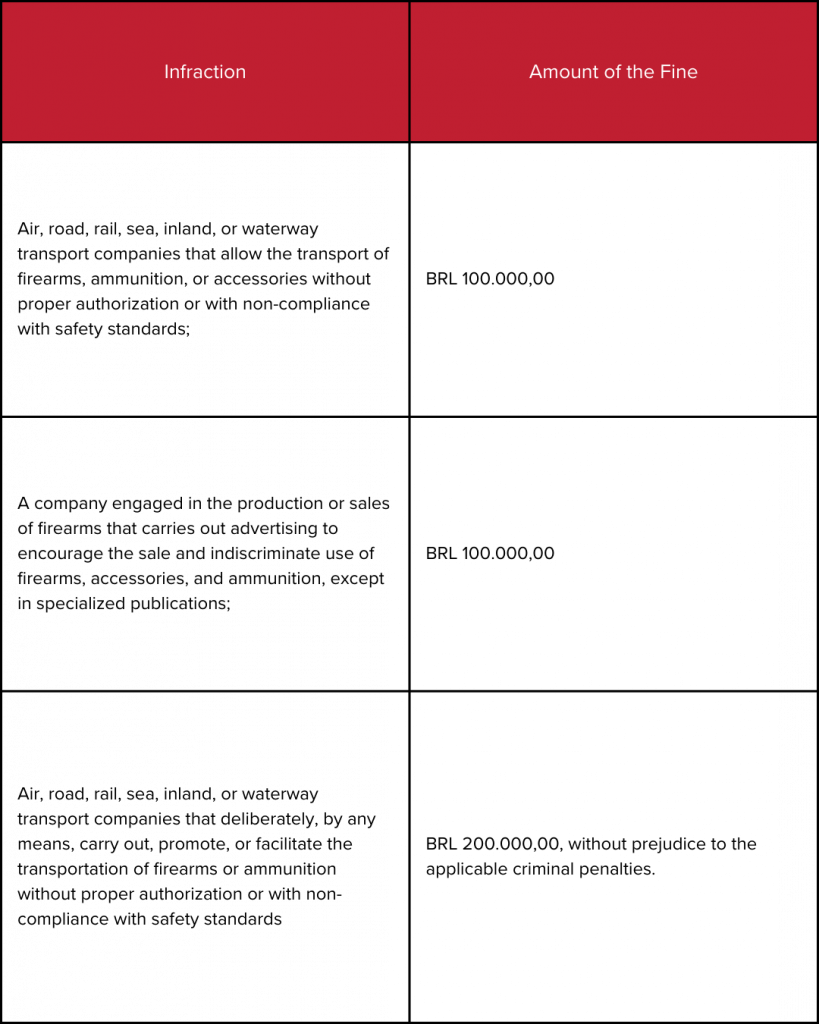
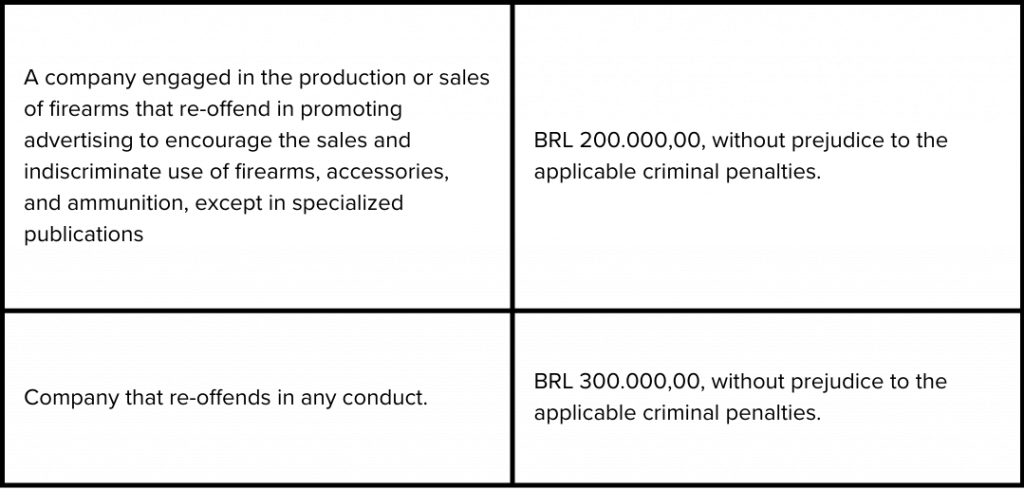
Click here to access the full text of the Decree.
The Public, Regulatory, and Infrastructure Law team is available in case of doubts.

Sign up and receive our publications: